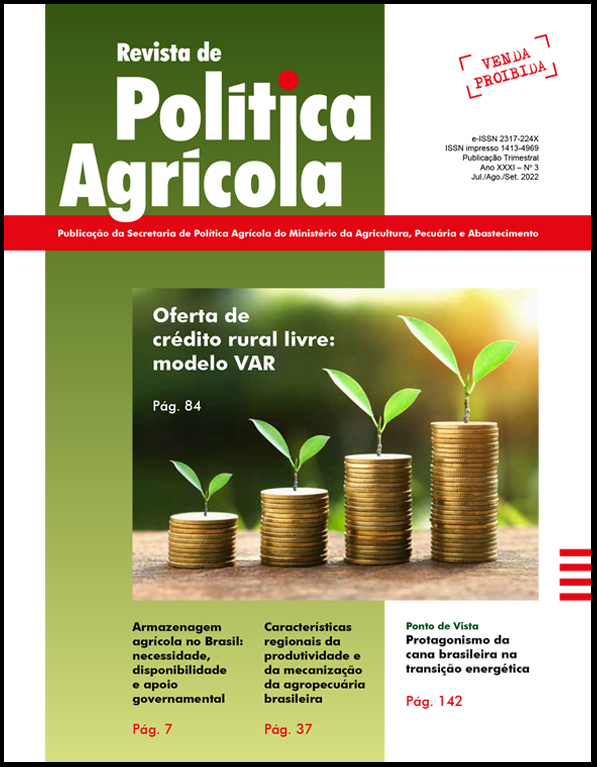Competitiveness of the Brazilian ethanol industry
Keywords:
Biofuel, sugarcane, sugar-energy industry.Abstract
Ethanol has received an outstanding attention throughout the debate on the need for change of the global energy matrix, with the aim to add cleaner and environmentally sustainable sources. However, putting aside the advantages of ethanol in the context of a more favorable energy matrix, since the beginning of the second decade of the 21st century Brazilian producers have faced a kind of national production restructuring strongly driven by the reconfiguration of competitiveness standards. Therefore, the objective of this article was to perform an abbreviated analysis of the competitiveness of the ethanol industry in Brazil, in the period from 2003 to 2019. The proposed period covers the phenomena of the launch, expansion, and consolidation of flex fuel cars in Brazil. The methodology is anchored in the work by Coutinho & Ferraz (1993a), which proposes a competitiveness approach based on the use of performance, efficiency, and training indicators. The results indicate a loss of competitiveness of the Brazilian ethanol industry, especially when the analysis concentrates on the second half of the studied period.Downloads
Published
2022-10-03
How to Cite
Moura, J. G. de, & Costa, J. A. (2022). Competitiveness of the Brazilian ethanol industry. Revista De Política Agrícola, 31(3), 99. Retrieved from https://rpa.sede.embrapa.br/RPA/article/view/1714
Issue
Section
Artigos Científicos


